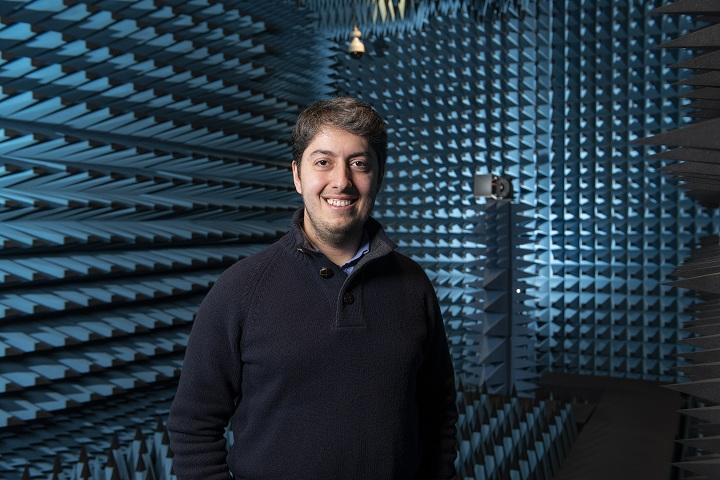
A researcher at Queen's University has secured funding to use machine learning to develop fast, automated security scanners for airports and event venues.
Airport security queues can currently delay travellers by hours at peak times, but that long wait could one day be a thing of the past thanks to new technology being developed by researchers at Queen's University. Dr Okan Yurduseven from the ECIT at Queen’s is developing new technology that could make airport security tighter while also cutting down waiting times.
Security scanners currently used in airports and some large events such as concerts can take up to 10 seconds to process scan data from a person to ensure they aren't carrying hidden weapons, and scan results often have to be inspected manually. The slow scan times present a bottleneck, forcing many airports and events to scan only a fraction of those entering and so decreasing overall security.
Dr Yurduseven explained the problem: "When we walk through the scanner, it can take around 10 seconds to collect and process the data and reconstruct an image. It takes even more when the data is sent to a controller, who then manually checks it for illegal items. It can also add extra time when there are false alarms."
The new process involves using Machine Learning to significantly reduce false positive detection rates. It will be integrated into the same kind of millimetre-wave radar systems currently in use in airports around the world, and will reduce the amount of time-consuming processing and manual inspection of images required.
The proposed tech would bring scanner times down from 10 seconds to less than a tenth of a second, making it suitable for large events and potentially slashing airport security lines. The technology will also be fully automatable, so it can be installed in a much wider variety of locations and may help to solve the privacy concerns some people have about radar scanners.
Dr Yurduseven has been awarded a Leverhulme Research Leadership Award to develop the new technology. He's now looking for four PhD students and four postdoctoral research associates in the fields of radar technology, image processing, and deep learning to join the five-year project.
Source: Written based on press release